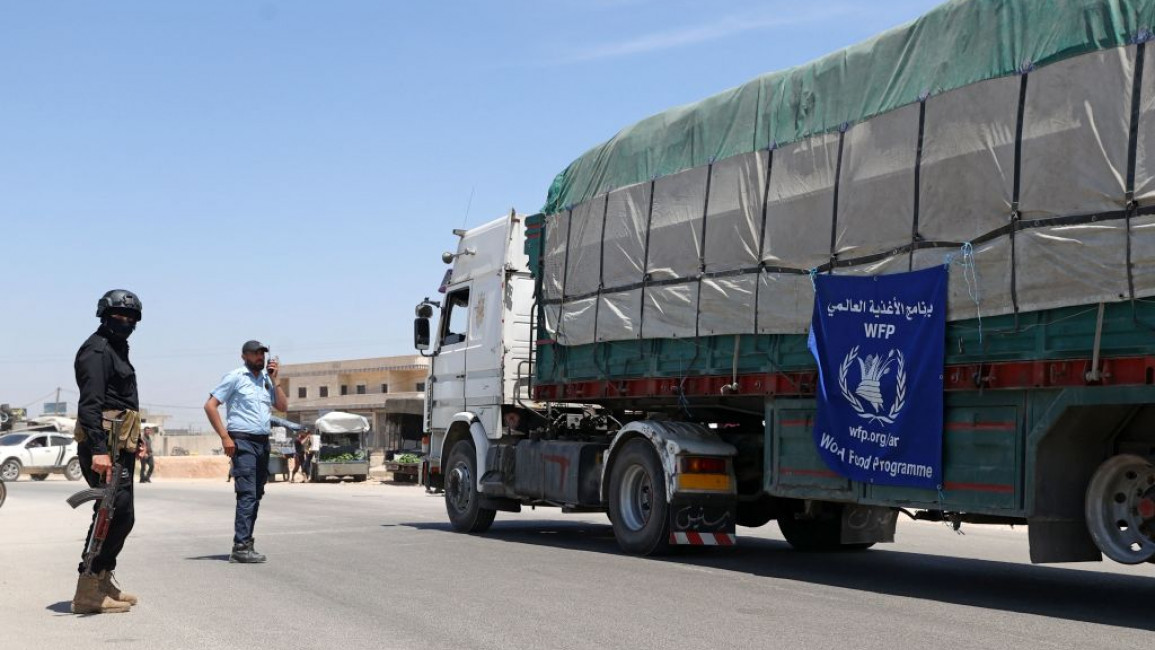Syria: UN body says halt to Idlib aid via Turkey would be 'failure of highest order'
A UN commission urged on Thursday that aid to Syria through the only remaining UN-approved border crossing must continue, saying it would be a "failure of the highest order" if it doesn't.
The UN Syria Commission of Inquiry's appeal comes as approval expires on 10 July for the Bab Al-Hawa crossing, which enables aid to be brought from Turkey to largely rebel-held Idlib province.
It follows Russian deputy UN envoy, Dmitry Polyansky, saying last week that he did not believe there was a reason to continue sending aid via Turkey.
UN Syria commission chair Paulo Pinheiro said: "It is a moral abomination that a [UN] Security Council resolution was in itself deemed necessary to facilitate cross-border aid in the face of consistent violations – by the Government of Syria and other parties – of their obligations under international law to allow and facilitate humanitarian relief for civilians in need."
The commission said the humanitarian situation in rebel-held northwestern Syria is getting worse given the continued fighting and economic difficulties there.
It noted that 4.1 million people there are dependent on aid for their basic needs, with 80 percent of these being women and children.
There are 2.4 million people in the region who receive aid through cross-border efforts permitted by the UN Security Council every month, the commission said, calling this a "lifeline".
The aid delivered from elsewhere in Syria is much smaller in scale and is threatened by violence as it passes through conflict zones, the commission added.
Around 1,000 trucks use the Bab al-Hawa crossing each month to deliver aid and medicines, including COVID-19 vaccines.https://t.co/N4ixeWCQkU
— The New Arab (@The_NewArab) June 25, 2021
"Aid delivery must be based only on a transparent and impartial humanitarian assessment, regardless of whether it is achieved through cross-line or cross-border modalities," Commissioner Lynn Welchman said.
"All obstacles to humanitarian aid must be removed."
The commission highlighted what it called an "alarming trajectory of consistent narrowing of the cross-border humanitarian aid delivery", adding that there had been four approved border crossings into northern Syria in 2014.
Russia and China blocked a UN resolution in July 2020 which would allow Bab Al-Hawa and one other Turkey-Idlib crossing to be continued to be used.
Soon after, the UN Security Council gave a green light for aid to proceed only through Bab Al-Hawa.
This approval lasted for a year and was renewed for a further year in July 2021.



